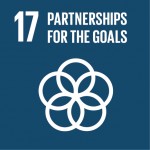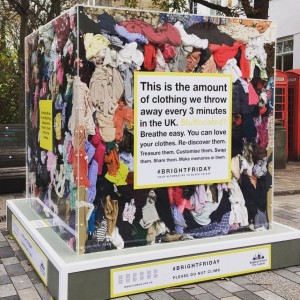Last week saw King’s College London host members of the Global Consortium for Sustainability Outcomes (GCSO).
The GCSO is an organisation made up of 11 world-leading universities, including King’s, aiming to create solutions to global sustainability problems through research, development and capacity building. Combatting climate change and working towards the UN Sustainable Development Goals requires innovative new solutions, and universities are often where these solutions are made – by academics and students alike. While each university might be able to drive change locally on its own, coming together to simultaneously implement solutions across the world can take these ideas to the next level.
King’s is a founding member of the GCSO and represented through Chris Mottershead, Vice Principal (Research and Innovation) and member of the College Council. This demonstrates the University’s commitment to sustainability, not only through improvement of day-to-day operations, but also at a senior strategic level.
Within the GCSO, several topic groups were set up to develop projects. The group that met at King’s last week is aimed at sustainability solutions related to energy, water and waste, that can be scaled from university campuses to the wider urban and rural environments. Representatives of the following universities were present:
- King’s College London
- University of Toronto
- Hong Kong University of Science and Technology
- Karlsruhe Institute of Technology
- Leuphana University of Lüneburg
- Dublin City University
- Universidad Nacional Autónoma de México
- Tecnológico de Monterrey
The aim of the three-day workshop was to agree on their first joint project. With each of the universities presenting their own project proposal, the workshop showed the variety of innovative sustainability solutions discussed around the globe.
Impressed with the quality of all proposals, the attendees of the workshop decided to combine aspects of each to develop a new, joint project – a toolkit to transform university campuses into ‘living labs’. In these living labs, academics, communities and other stakeholders come together to test new ideas and technologies. If the test proves to be successful, it can be replicated elsewhere. Any changes within the ‘living lab’ campuses will be monitored and evaluated using quantitative  and qualitative measures developed at the GCSO institutions. This way, universities can ensure that operations and users of buildings do not experience any negative impacts as a result of the “experiment”.
and qualitative measures developed at the GCSO institutions. This way, universities can ensure that operations and users of buildings do not experience any negative impacts as a result of the “experiment”.
King’s has agreed to be one of several test sites for the first GCSO project, exploring energy-savings around hot water. If successful, this project could save 3-4% of the university’s annual CO₂ emissions, bringing King’s closer to its 43% reduction by 2020 target. Details on what exactly students and staff can expect from the project will be announced at a later stage, so look out for further information!
With the first one-year pilot project due to kick off in the next few months, we are hoping that this global collaboration will continue to deliver innovative solutions over the coming years. The workshop saw so many exciting proposals to improve sustainability, it is without doubt that this first GCSO project will not remain the only one.
More information on the GCSO can be found on the organisations website.
The GCSO projects links to UN Sustainable Development Goals 11 (Sustainable Cities and Communities), 12 (Responsible Consumption and Production) and 17 (Partnerships for the Goals). More on the Sustainable Development Goals here.











 Deforestation and forest degradation account for an estimated 10-11% of global GHG emissions. In the digital age that we live in, there is no need for King’s to be printing as much as it does. Collect scrap paper and use it for drawing and notes. At the start of the new academic year, shop for notebooks made out of recycled paper! When you buy paper – printer paper, paper towels, toilet paper, etc. – make sure they are forest-friendly and try to buy furniture that is made from sustainably sourced timber. Little things like that can reduce our environmental footprint and make a big difference.
Deforestation and forest degradation account for an estimated 10-11% of global GHG emissions. In the digital age that we live in, there is no need for King’s to be printing as much as it does. Collect scrap paper and use it for drawing and notes. At the start of the new academic year, shop for notebooks made out of recycled paper! When you buy paper – printer paper, paper towels, toilet paper, etc. – make sure they are forest-friendly and try to buy furniture that is made from sustainably sourced timber. Little things like that can reduce our environmental footprint and make a big difference.